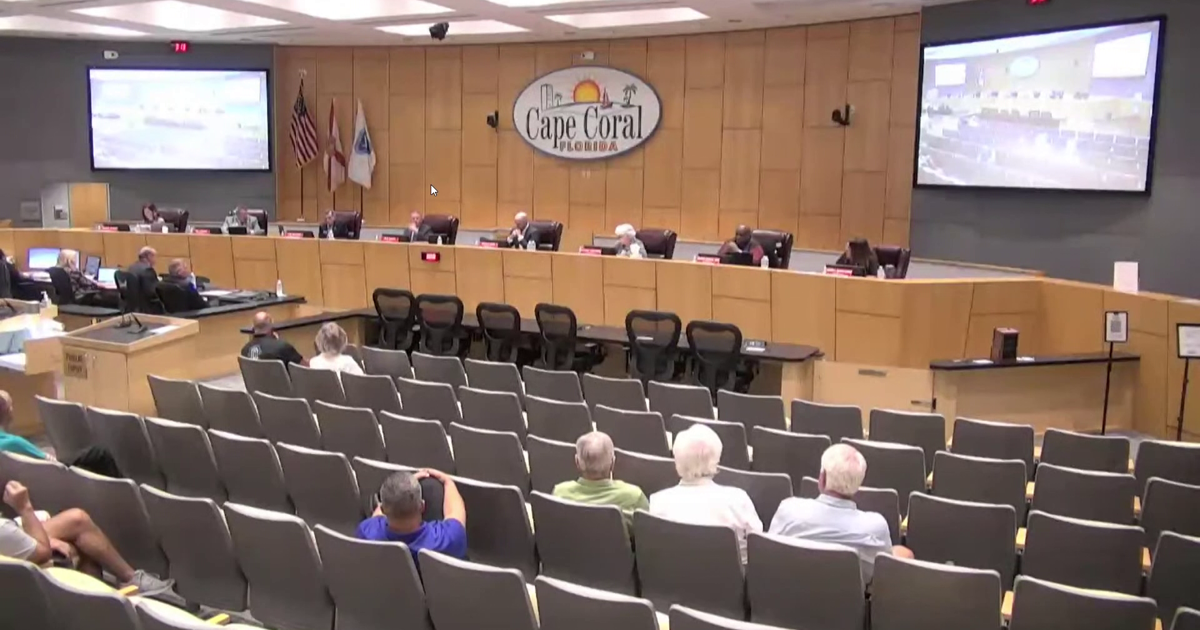Cape Coral leaders have been wrestling with the proposed mobility fees for two weeks, hoping these fees will help address a projected $1.7 billion infrastructure shortfall over the next 20 years.
Initially, the motion for the mobility fees failed to receive the necessary two-thirds vote to move forward. However, the City of Cape Coral brought the proposal back to the table later in the meeting, where it passed unanimously.
Cape Coral officials decided to move forward with the September 19 version of the mobility fees after weeks of discussions and debates. During the first vote, Cape Coral Mayor John Gunter expressed his concerns.
“There is no guarantee what a future council may or may do,” said Gunter. “So that’s a concern that I have so for that reason I will still probably be a no vote with what is presented here.”
The council revisited the mobility fees, this time considering last week’s version. According to the City of Cape Coral, the fees will increase each year by 12.5% starting in 2026 through 2029. This funding aims to improve the city’s infrastructure, a prospect that excites Cape Coral judo teacher John Paccione.
“We have a lot of students, there are over 10,0 so it affects them as well,” said Paccione. “Some of them come in from Fort Myers. So they do have to make the roads accessible. They have to make the bridges accessible.”
The ordinance mandates that fees collected in specific districts must be spent within that district. Paccione believes this could lead to further developments.
“It’s just the beginning when they start seeing the revenue from that,” said Paccione. “Then they’ll implement them other ways.”
The new mobility fees will take effect next year. According to the ordinance, fees must be refunded if they are not used within seven years.

